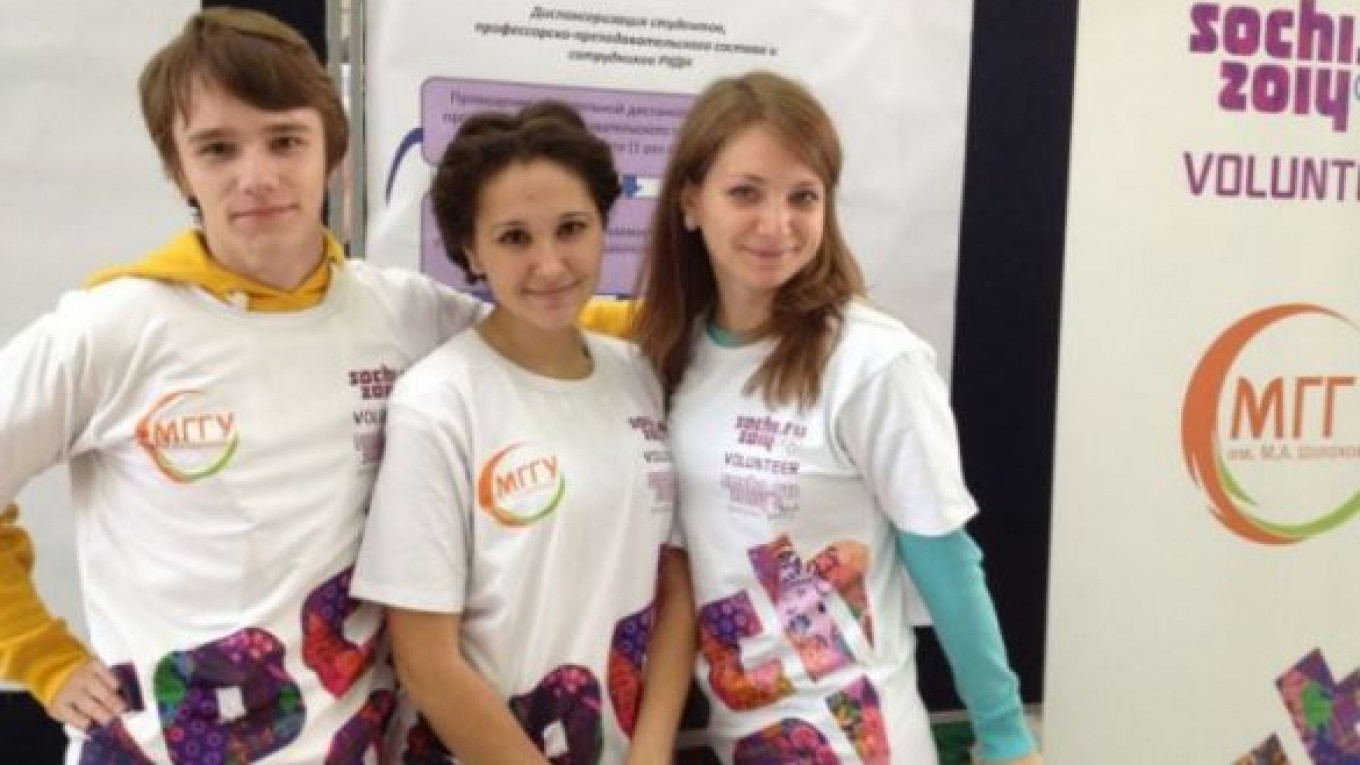Russia has achieved 31st place out of 60 countries in English proficiency, beating France and Italy, but falling behind Latvia and Ukraine on an index published annually by language school English First.
The country may have got a boost in the ratings from the Olympics. English First was drafted in this year by the government to pump up the language skills of 30,000 volunteers for the winter games in Sochi in February.
Knowledge of English is one of the essential skills required of Sochi volunteers, said Tanya Kochkina, manager of the Olympics Games English language training project. They "need to be able to explain and show the country from a positive side," she said.
The school tested 75,000 applicants for the training program, including Olympic staff, volunteers, event referees and contractors. Of these, 33,000 were selected for online training, 30,000 of whom were able to attend interactive seminars in 20 cities, where they were given the opportunity to practice their English skills with other people.
English First's management in Moscow declined to comment on the amount of funding they received for the program.
Despite Russia's improvement on the proficiency rating — the country bettered its 2012 score, but due to an increase in the amount of countries included in the index, fell from 29th place to 31st — English skills among adults remain low, the English Proficiency report said. Among BRIC countries, Russia came in second after India.
However, international sporting events held in Russia, ever-wider Internet use and the flow of scientific research written in English make learning the language a necessity, rather than a recreational activity, said Carl Cronstedt, English First's country manager.
"In our global world, we need to have a shared language, because communication is no longer tied to geography," said Beata Schmid, who is responsible for the academic programs at the school. "And as things stand, English is that shared language in academia, business and international cooperation."
Charting United Nations data on income per person against English proficiency, the report shows a strong positive correlation between the two. Countries whose populations speak better English also tend to export more, have more service-oriented economies and better business climates, it concludes, using data gleaned from the UN, the World Bank and the CIA. English First also cited a survey conducted by the Economist Intelligence Unit in 2012, which showed that nearly 70 percent of executives in non-English speaking countries expected their workforce to master English, often making English a key criterion in determining employability.
The English Proficiency Index was calculated using data from about 750,000 people who took online tests on English First's website from 60 different countries. Since the tested group was self-selected, the data does not guarantee to be representative of the country as a whole.
Contact the author at g.moukine@imedia.ru
A Message from The Moscow Times:
Dear readers,
We are facing unprecedented challenges. Russia's Prosecutor General's Office has designated The Moscow Times as an "undesirable" organization, criminalizing our work and putting our staff at risk of prosecution. This follows our earlier unjust labeling as a "foreign agent."
These actions are direct attempts to silence independent journalism in Russia. The authorities claim our work "discredits the decisions of the Russian leadership." We see things differently: we strive to provide accurate, unbiased reporting on Russia.
We, the journalists of The Moscow Times, refuse to be silenced. But to continue our work, we need your help.
Your support, no matter how small, makes a world of difference. If you can, please support us monthly starting from just $2. It's quick to set up, and every contribution makes a significant impact.
By supporting The Moscow Times, you're defending open, independent journalism in the face of repression. Thank you for standing with us.
Remind me later.






